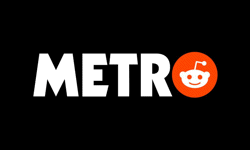
Web groups will be obliged to disclose who paid for ads, what criteria were used for targeting, and the number of people ads were served to.
The document warned that the means used by social media firms to target people with political ads had resulted in “negative effects” on “their freedoms of opinion and of information, to make political decisions and exercise their voting rights”.
Social media giants have been under scrutiny in recent years over the ability of political groups and parties to use their platforms to target voters without any transparency.
Vera Jourova, the European Commission’s vice-president for values and transparency, told an audience in Lisbon this month that online political advertising “is the unchecked race of dirty and opaque methods”.
“We have to hit the ‘slow down’ button, because our democracy is too precious,” she said. “The right to speak does not mean the right to reach.”
The proposed legislation would require companies involved in political advertising to identify which political party is funding their ad and require political parties to label their ads. It will also force Twitter users to identify any funders for their tweets.
The draft legislation stipulates that firms who break these rules will be liable to pay a fine of up to 5 percent of their turnover.
These proposals are not exclusive to the EU, but reflect a wider global concern about the power of Big Tech.
Keep up-to-date with publishing news: sign up here for InPubWeekly, our free weekly e-newsletter.










